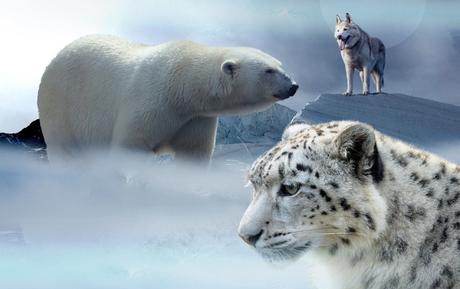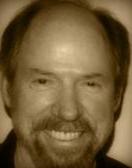GR: Here’s the case for optimism for the great loss of species and a literate response that the arguments supporting the case are rubbish. And rubbish they are. The optimistic professor making the case seems to forget that we can only be optimistic when we know fear. Our optimism can be cowardly (accepting) or courageous (challenging). Knowing what might happen and hoping for a better outcome, the courageous will fight for that outcome while the coward will sit smug waiting for the good to come. The optimistic professor appears to be on the smug side of this divide.
I have to assert that the professor’s optimism is more than just cowardly, it is based on inaccurate premises. Here’s one clear example: The result of humans behaving naturally may be the end of life on Earth. Our planet is truly like an isolated petri dish with limited resources. Humans are behaving naturally within the bounds of evolution and ecology as the professor says, but so are the bacteria that consume all the resources in their little dish and then die leaving behind no life at all.
The idea that we want to become acquainted with the few hardy species that will survive the Anthropocene and be our companions on the other side inspired me to write a book about weeds. I guess the work represents a cowardly response to fear but with resignation instead of smugness. Okay, that’s a bit pretentious. My book also represents simple curiosity and appreciation for the amazing plants that thrive in adverse environments. I plan to continue arguing for population and pollution control and a societal shift toward ecological restoration of damaged ecosystems. But that doesn’t seem truly courageous, it just seems like the natural thing to do.
Here’s Animalista Untamed’s critique of Professor Chris Thomas’s new book Inheritors of the Earth, How Nature is Thriving in an Age of Extinction.

Animalista Untamed.
“One man thinks we should. Stop worrying about what is happening to the planet – just kick back and enjoy the ride. That is the message of ecologist Chris Thomas’s new book ‘Inheritors of the Earth, How Nature is Thriving in an Age of Extinction”. “It is time” he writes, “for the ecological, conservation and environmental movement to throw off the shackles of a pessimism-laden, loss-only view of the world.”
“We’ve now become all too unhappily familiar with the ‘Anthropocene’, the word coined by Dutch Nobel Laureate Paul Crutzen to describe this new age, the age in which Man has played havoc with the entire functioning of the planet. We’ve altered the make-up of the atmosphere, the chemistry of the oceans, changed the climate itself. Glaciers are melting, sea levels rising. We’ve depleted biodiversity, plants and animals, and messed up their distribution. We’ve rerouted rivers, drained lakes, razed forests and covered the Earth in highways and cities. And all the while our own population has exploded, 7.4 billion today and an expected 9.7 billion by 2050.
“What is there not to be alarmed about?
“Anthropocenists (by that I mean the vast majority of ecologists who are concerned about the repercussions of human activity) propose that if we have the technology to so damage the planet, why can’t we turn technology to its healing? Hi-tech geo-engineering such as air cleaning plants, altering ocean chemistry to absorb more carbon, or capturing carbon emissions from power stations and factories. Maybe we could even modify the weather. A luxury travel company that promises perfect wedding weather for the big day thinks we can. Expert opinion says otherwise: “The scale of the Earth’s atmosphere is far too great to tamper with—at least for now.” according to meteorologist Bruce Broe.
“But Professor Chris Thomas’s thinking runs on altogether different lines, and he’s nothing if not a glass-half-full man. In this age of mass extinction, he says, nature will do what it always does – fight back.
“A quick summary of his thinking –
- “Man is an animal and just as much a part of Nature as a bird or a fish
- “Contrary to what we are constantly being told, Nature is thriving. There are biodiversity gains as well as losses, and “the number of species is increasing in most regions of the world”
- “The essence of life is eternal change – everything lives, evolves, dies. There is no stasis in Nature. We need to embrace the change and forget about trying to hold back the hands of the clock
“Taking each of those points in turn:” –Animalista Untamed. (Should We Look on the Bright Side of the 6th Mass Extinction? – Animalista Untamed.)

